Profenid-E 50 | Tablet | 10 pcs
৳ 60.20
Brand Name: Profenid-E Tablet (Enteric Coated)
Generic: Ketoprofen
50 mg
Manufacturer: Sanofi Bangladesh Ltd.
Unit Price: ৳ 6.02 (5 x 10: ৳ 301.00)
Strip Price: ৳ 60.20
Indications
Ketoprofen is indicated in musculoskeletal and joint disorders such as ankylosing spondylitis, osteoarthritis, and rheumatoid arthritis, in periarticular disorders such as bursitis and tendinitis, in mild to moderate pain such as dysmenorrhoea or postoperative pain, and in other painful and inflammatory conditions such as acute gout or soft tissue disorders.
Ketoprofen is used for symptomatic relief of mild to moderate pain, such as postoperative (including that associated with dental surgery) postpartum and orthopedic (including musculoskeletal strains or sprains) pain and visceral pain associated with cancer.
Ketoprofen IM injection is indicated for management of acute exacerbations of: Rheumatoid arthritis, osteoarthritis, ankylosing spondylitis, periarticular conditions such as fibrositis, bursitis, capsulitis, tendinitis, and tenosynovitis, low back pain of musculoskeletal origin, sciatica, other musculoskeletal conditions, acute gout and control of pain and inflammation following orthopaedic surgery.
Ketoprofen 2.5% Gel is an anti-inflammatory and analgesic preparation to be applied topically to the painful area. It is indicated as a short-term treatment for traumatic lessions (sprains, tendinitis, edema, bruises) and pain.
Therapeutic Class
Pharmacology
Ketoprofen is a non-steroidal anti-inflammatory drug (NSAID) with analgesic and antipyretic actions. In addition to the inhibition of prostaglandin synthesis, it stabilizes lysosomal membranes in vitro and in vivo, inhibits leukotriene synthesis in vitro at high concentrations, and also exhibits antibradykinin activity in vivo. Ketoprofen produces analgesia by inhibiting the synthesis of prostaglandins peripherally and centrally. It has also been suggested that Ketoprofen causes the suppression of prostaglandin synthesis in the CNS (probably in the hypothalamus) leading to its antipyretic effect.
Ketoprofen is rapidly and almost completely absorbed from the GI tract. It is approximately 99% bound to plasma protein, mainly albumin. Following single or multiple oral doses in healthy adults, the elimination half-life of the drug has averaged 1.1-4 hours. It is rapidly and extensively metabolized in the liver, principally via conjugation with glucoronic acid. Following a single oral dose of Ketoprofen in healthy adults, about 50-90% of the drug is excreted in urine and about 1-8% in faeces within 1-5 days ; most urinary excretion occurs within 12-24 hours and most faecal excretion occurs within 24-48 hours. In case of IM injection, peak concentration of approximately 10 mg/L is reached at about 0.5-0.75 hour after a 100 mg dose. The elimination half-life is approximately 1.88 hour.
Dosage & Administration
Ketoprofen Tablet: Oral treatment with Ketoprofen is 50-100 mg daily, taken with food to minimize gastrointestinal disturbance. For rheumatic disease, 100-200 mg daily in 2-4 divided doses with food. For pain and dysmenorrhoea, 50 mg up to 3 times daily.
Ketoprofen SR Capsule: 100-200 mg once daily, depending on patient’s weight and on severity of symptoms
Ketoprofen IM injection:
- Adults: 50 to 100 mg every four hours, repeated up to a maximum of 200 mg in twenty-four hours for up to 3 days. Following a satisfactory response oral therapy should be instituted with Ketoprofen tablet. It is recommended that the injection should not normally be continued for longer than three days.
- Elderly: As with other medications it is generally advisable in the elderly to begin ketoprofen therapy at the lower end of the dose range and to maintain such patients on the lowest effective dosage.
- Paediatric dosage: Not established for intramuscular use. It is not used as intravenous injection.
Ketoprofen 2.5% Gel: This is to be applied to the painful area twice daily. The gel can be used with an occlusive dressing. Rub gently into the skin to ensure penetration.
Suppository: 1 suppository (100 mg) late at night supplemented as required with Ketoprofen capsules during daytime. Ketoprofen suppositories are especially appropriate for controlling overnight symptoms (severity of night and morning pain; duration and severity of morning stiffness). Suppositories administered late at night provide more consistent effective control of overnight symptoms than oral medication.
Dosage of Ketoprofen must be carefully adjusted according to individual requirements and response, using the lower possible effective dosage. Dosage exceeding 300 mg daily has not been adequately studied and are not recommended.
Interaction
Contraindications
Ketoprofen is contraindicated in patients with known hypersensitivity to the drug. Ketoprofen is contraindicated in patients in whom asthma, urticaria, or other sensitivity reaction is precipitated by aspirins or other NSAIDs, since severe, rarely fatal, anaphylactic reactions to Ketoprofen have been reported in these patients. The risk of potentially serious adverse GI effects should be considered in patients receiving Ketoprofen, particularly in patients receiving chronic therapy with the drug. Ketoprofen should be used in patients with GI bleeding or active peptic ulceration only when the potential benefits justify the possible risks.
Side Effects
Pregnancy & Lactation
Precautions & Warnings
- Ketoprofen should be used with caution in patients who may be adversely affected by a prolongation of bleeding time (e.g. patients receiving anticoagulant therapy), since the drug may inhibit platelet function.
- Ketoprofen should be used with caution in patients with heart failure, hypertension, or other conditions associated with fluid retention, since peripheral edema has been observed in some patients receiving the drug.
- Liver function should be monitored periodically during long-term Ketoprofen therapy.
- Ketoprofen injection must not be given intravenously.
- Ketoprofen gel should not be applied to patients who have allergy to
- ketoprofen, other anti-inflammatory agents and aspirin.
Use in Special Populations
Storage Conditions
| Generic Name | Ketoprofen |
|---|---|
| Size | 50 mg |
Only logged in customers who have purchased this product may leave a review.



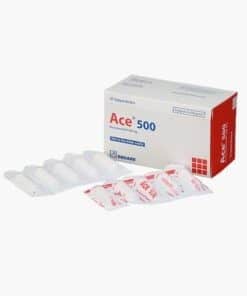
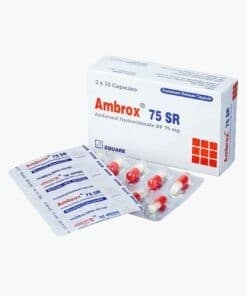
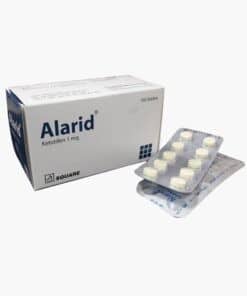
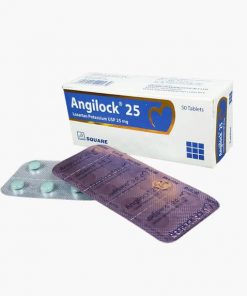
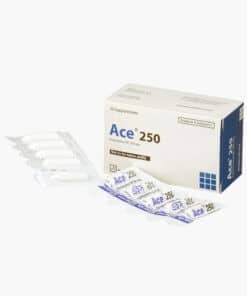
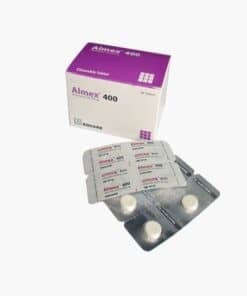
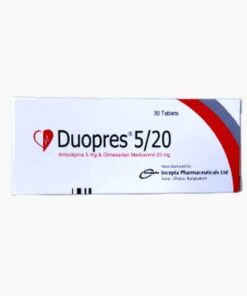
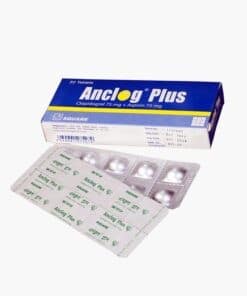
Reviews
There are no reviews yet.